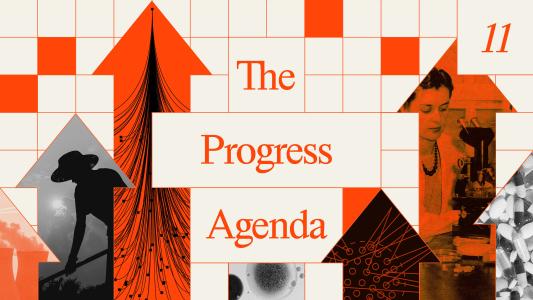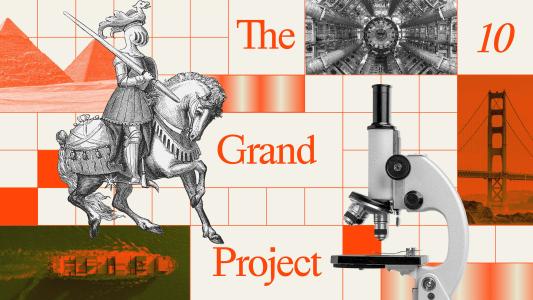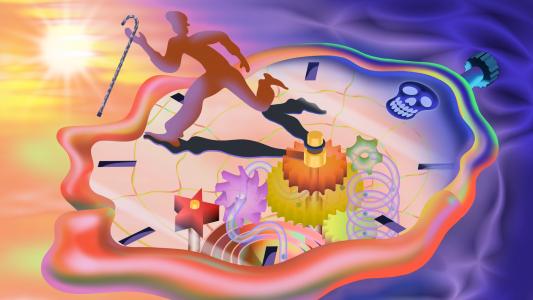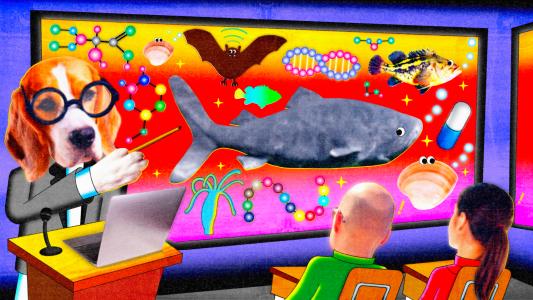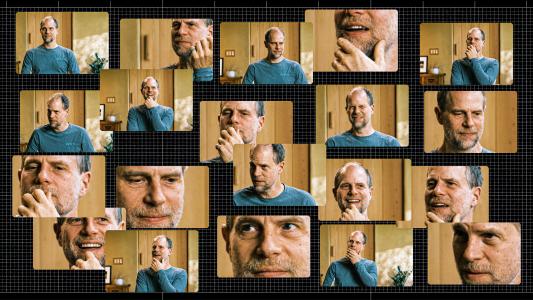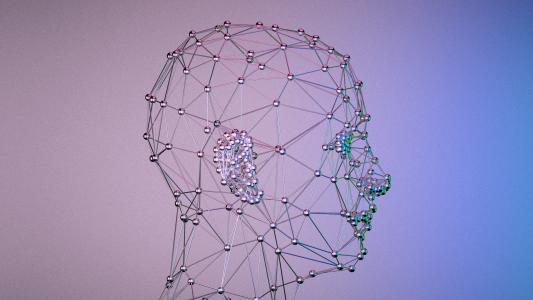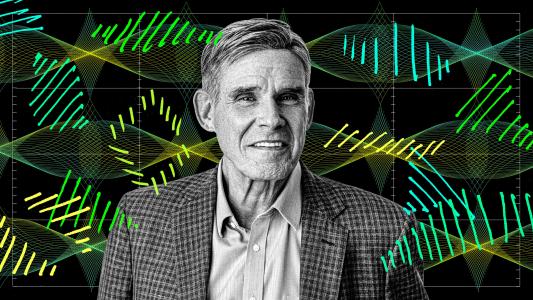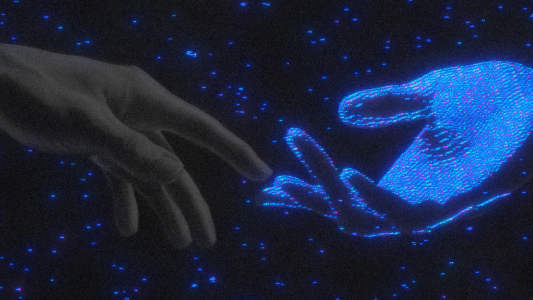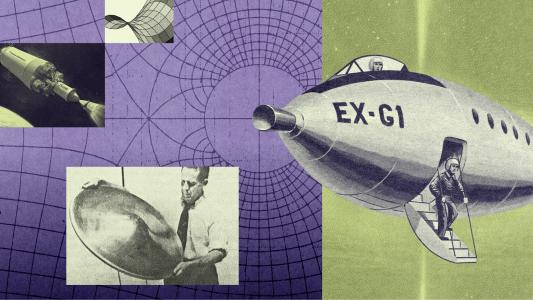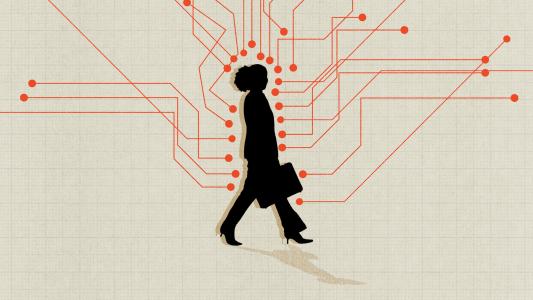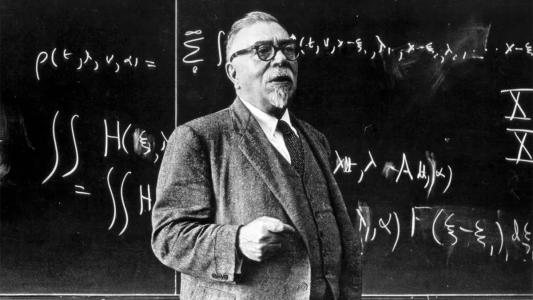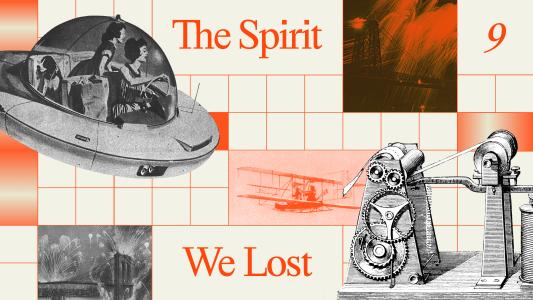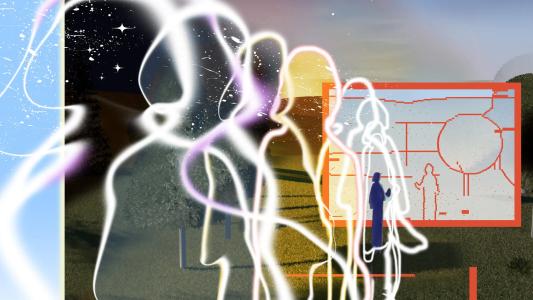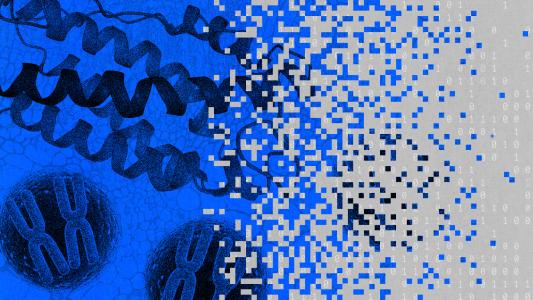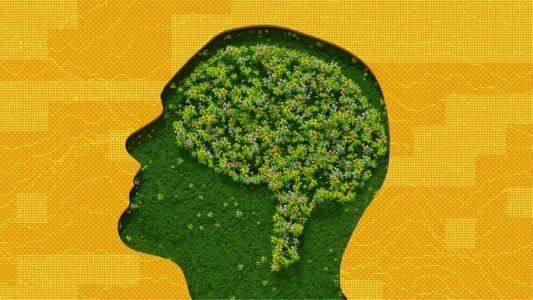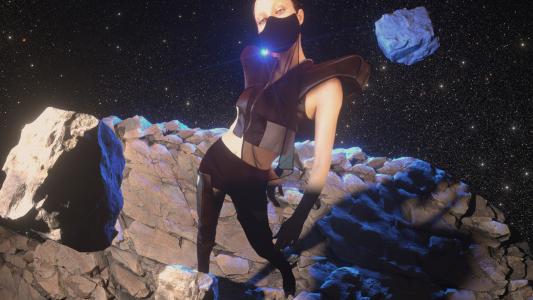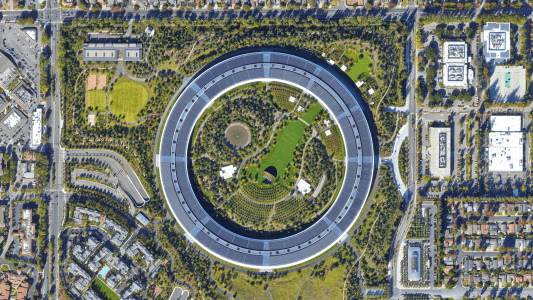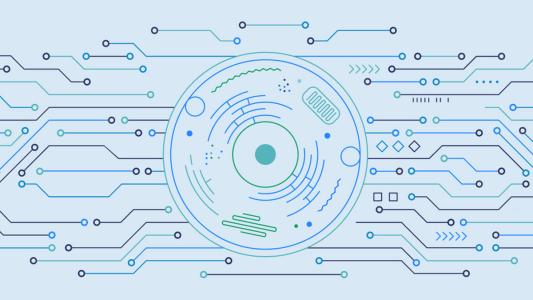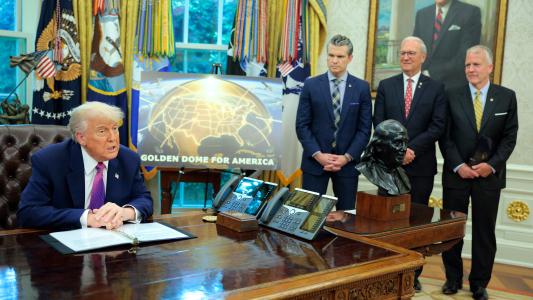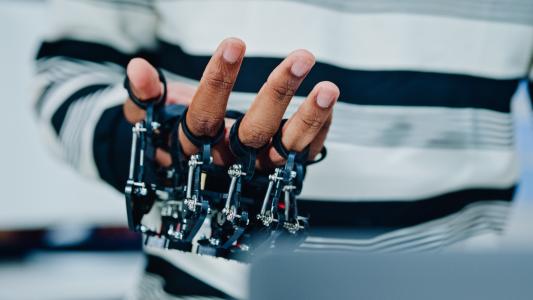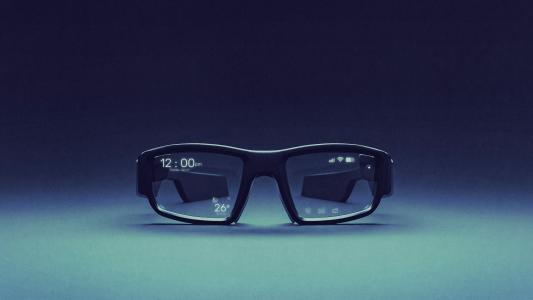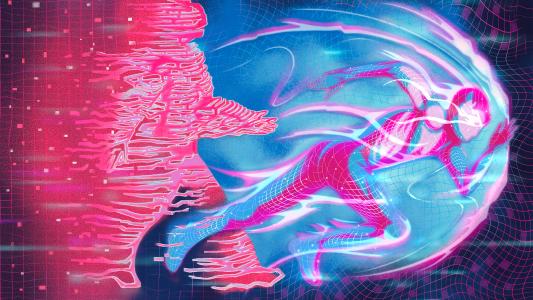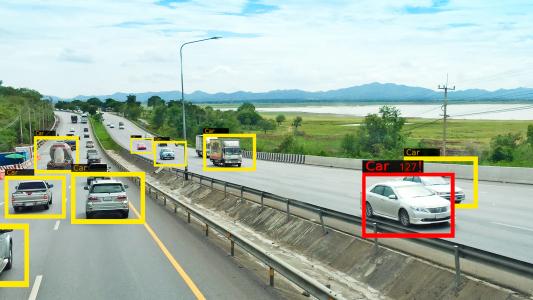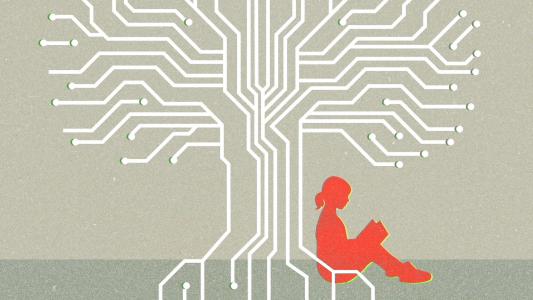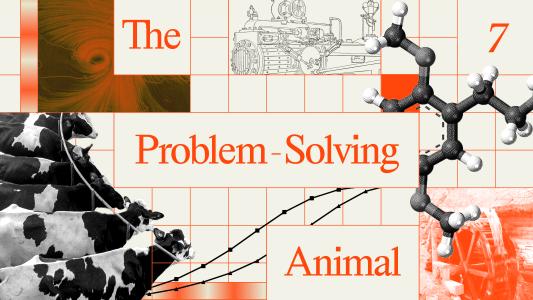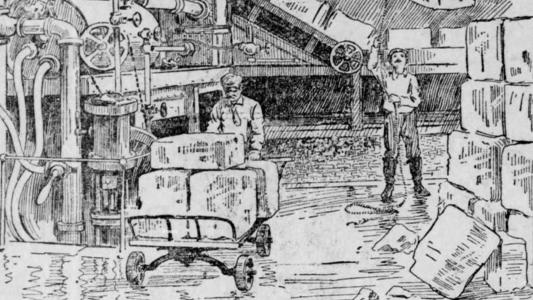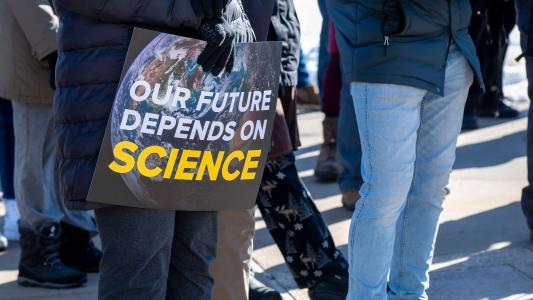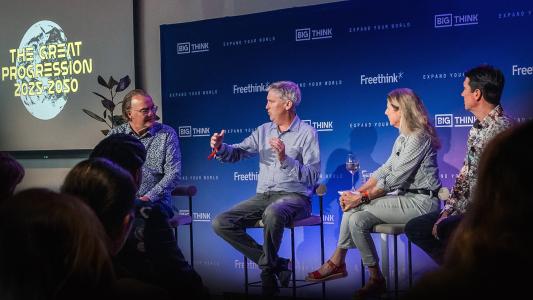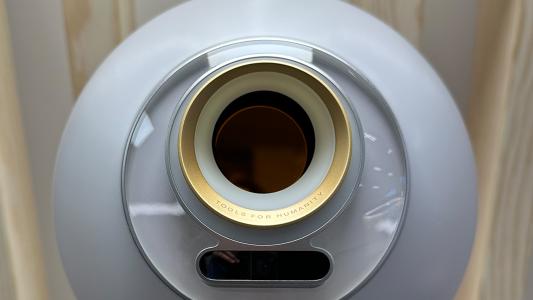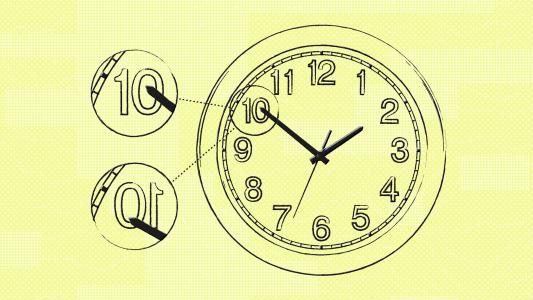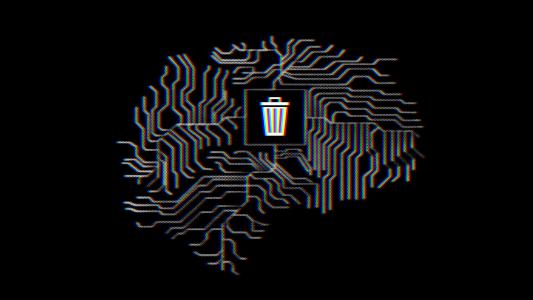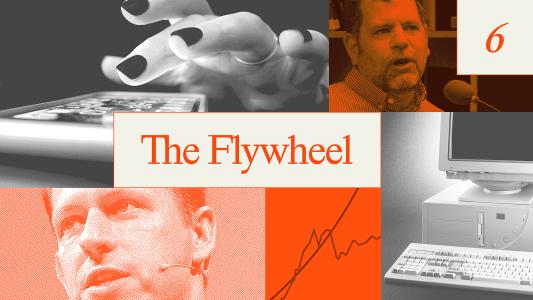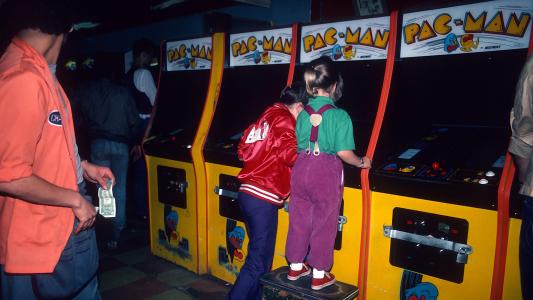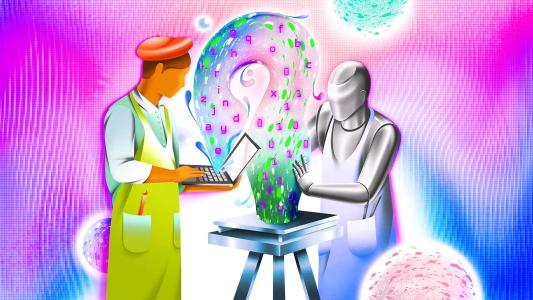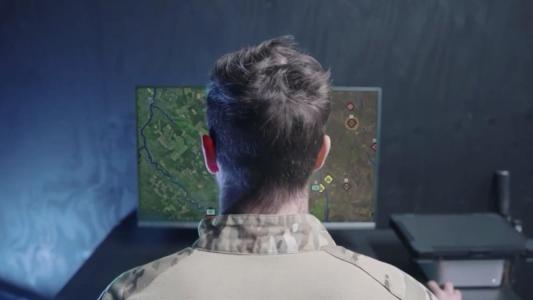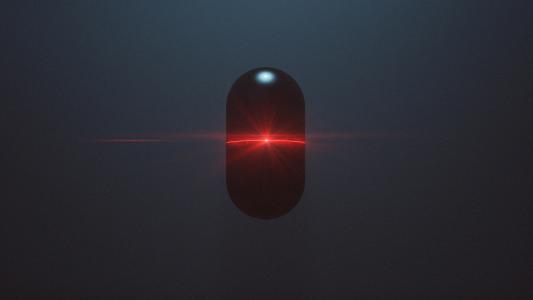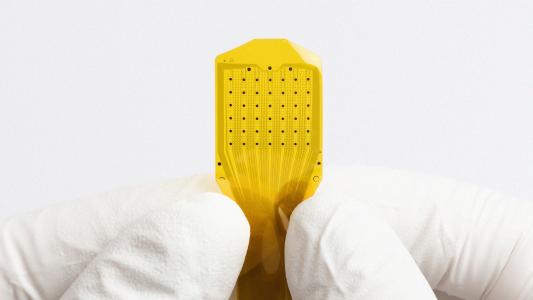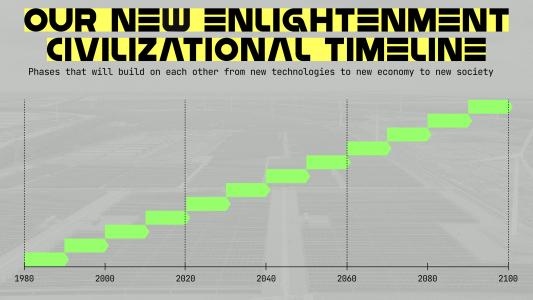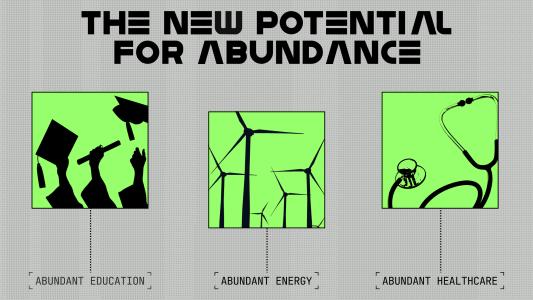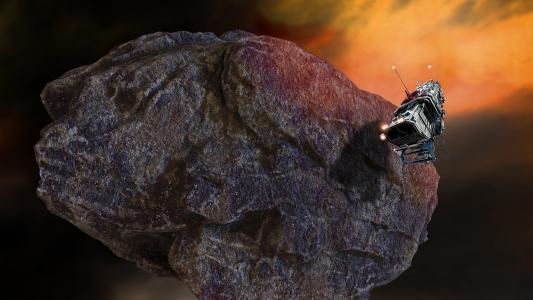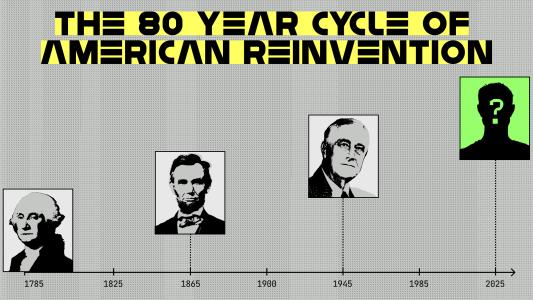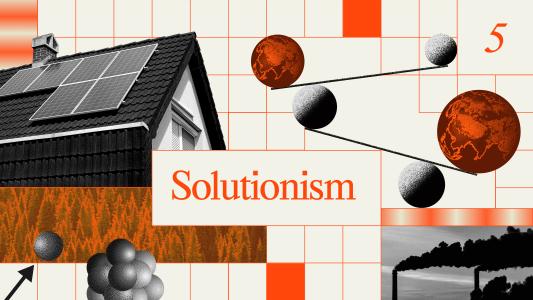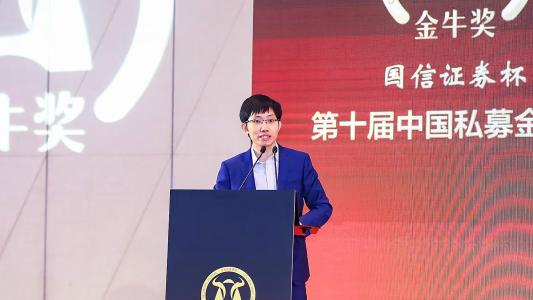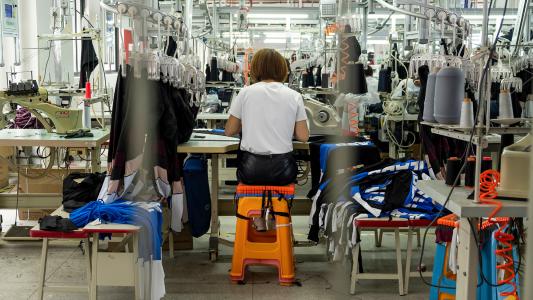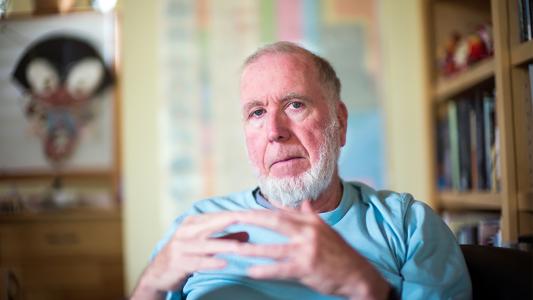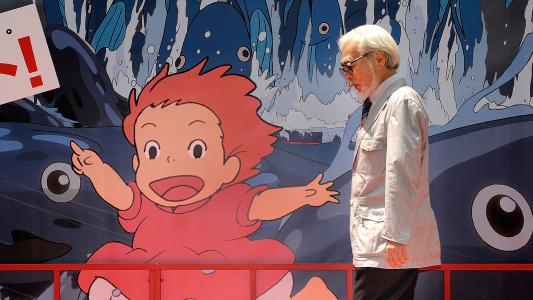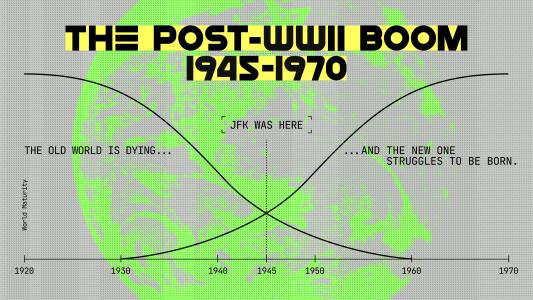A memo from the future
In the world of 2069, humans have more reach, more speed, and more leverage than any previous generation.
A playbook for the next century of progress
To build a bold, abundant future, we must reform the laws, institutions, and culture that once powered human progress.
Progress is a grand project for humanity
Progress offers meaning, demands virtue, and calls builders to turn bold ideas into wonders that uplift human life.
How Ford built “an efficiency engine” around the Model T
An excerpt from author and structural engineer Brian Potter's forthcoming book, "The Origins of Efficiency."
The left–right twist that could rewrite tech
Scientists are harnessing chirality — the left- and right-handedness of molecules — to build better batteries, sharper displays, and more.
America’s path to maritime leadership is clear — but it demands urgency
America leads the world in aerospace, software, and clean energy. Here's how it can lead in maritime, too.
Longevity progress is real. So are the scams.
Longevity is in a paradoxical place at the moment, with anti-aging influencers misrepresenting real progress in order to make money.
How a dog’s life could extend yours
Studying animals — from long-lived clams to everyday dogs — is helping scientists understand aging and design therapies to slow decline.
Who wants to live forever? Not me.
Most Americans remain wary of immortality, and research helps explain the mix of ethics, faith, and fear behind that resistance.
Aubrey de Grey: “We need a COVID-scale war on aging.”
Biomedical gerontologist Aubrey de Grey discusses the burgeoning longevity movement and barriers to its progress.
Why tomorrow’s longevity treatments could be divided by sex
Why women consistently outlive men is a mystery — and it may influence the future of longevity medicine.
Retro Biosciences wants to add 10 healthy years to your life
Backed by $180 million in funding from OpenAI's Sam Altman, Joe Betts-LaCroix’s Retro Biosciences is racing to extend the human healthspan.
My time among the immortality tribe
Field notes from Vitalist Bay, an 8-week longevity zone in Berkeley where CEOs, scientists, and activists united to fight aging.
The longevity movement is growing — but it needs to go global
Progress in longevity is real, but experts say the field needs government funding, policy reform, and public buy-in to reach its potential.
Living longer — and healthier — starts with boosting your brain
Science is beginning to unravel the reasons behind age-related cognitive decline — and what we can do about it.
Forget just living longer. Eric Topol wants to help Americans live better, too.
In "Super Agers," the writer and medical researcher maps a path to extending healthspan with AI, targeted drugs, and lifestyle changes.
Experts weigh in on popular “anti-aging” treatments: real or scam?
Experts cut through longevity hype, debunking supplements, IV drips, and cold plunges while pointing to what actually works.
AI deadbots can keep “you” around after death — what does that mean for the living?
We can now use AI to create versions of real people that can live on long after their bodies die. But should we?
Groundhog Day and other eternal nightmares: Five philosophical takes on living forever
From eternal recurrence to techno-dualism, five philosophical visions of immortality — and why most paths to forever end badly.
Immortality isn’t progress. It’s paralysis.
The pursuit of immortality ignores how death powers life’s natural cycles, from cellular turnover to ecological renewal and adaptation.
The promise of longevity: A future with more time — and more meaning
An introduction to Freethink's Longevity Issue: features, essays, and op-eds on the science, ethics, and promise of longer, healthier lives.
How technocracy made us doubt progress
The 20th century left us with fatalism, defeatism, and a hollowed-out vision of the future. Techno-humanism can restore our belief in progress.
“War of the Worlds” didn’t panic America. Newspapers did.
Legacy newspapers inflated a handful of complaints into "mass panic" to blunt radio’s rise and defend their influence.
The search for anti-gravity propulsion
Exploring the strange intersection of science, conspiracy, and military secrecy in the decades-long quest for anti-gravity propulsion.
The AI vibe shift: From doom to realism
Existential anxiety surrounding AI is giving way to more realistic concerns about its potential impact on the workforce and beyond.
AI will never be a shortcut to wisdom
Real understanding, argues thought leader Jeff DeGraff, doesn’t come from outputs — it comes from practice.
No, AI won’t take all the jobs. Here’s why.
When you consider the mechanics of integrating AI into the job market, the idea that it will take all our jobs quickly falls apart.
AI doomerism isn’t new. Meet the original alarmist: Norbert Wiener
Decades before Geoffrey Hinton and Eliezer Yudkowsky raised alarms, the computer scientist warned AI could steal jobs and outsmart humans.
We used to celebrate science and innovation
From the Brooklyn Bridge to the polio vaccine, society once honored signs of progress with parades, fireworks, and festivals.
Ancient Olympians wouldn’t qualify for today’s Games
Across history, the human body has been reshaped by discipline, medicine, and now technology — each era redefining peak performance.
A tragedy, a lawsuit, and the birth of an AI moral panic
A lawsuit claiming an AI chatbot caused a teen’s suicide risks sparking a new moral panic, echoing past fears built on distorted evidence.
Why AI gets stuck in infinite loops — but conscious minds don’t
Anil Seth suggests the difference is that living beings are rooted in time and entropy, a grounding that may be essential for consciousness.
We purged worms from our bodies — and may have made ourselves sick
Biotech labs are mining worm chemistry to design medicines that calm the immune system without the risks of live infection.
The Eiffel Tower was considered techno-dystopian
Before completion for the 1889 World’s Fair, the Eiffel Tower project was treated by some as an industrialist "Tower of Babel."
From cryonics to aging: How AI is transforming human health
From curing rare diseases to extending lifespans, four biotech founders share how AI is rewriting the future of medicine.
What if humans mastered every aspect of nature?
A bold vision of a 10x better future where humanity has mastered biology, energy, and matter to unlock unprecedented progress.
Governing AGI: Model laws, chip wars, and sovereign AI
The US must regulate AI in a way that protects society, preserves America’s competitive edge, and fosters innovation — all at the same time.
The forgotten war on the Walkman
Today, the Sony Walkman inspires nostalgia, but in the 1980s, it was feared as a dangerous device that could disconnect society.
If we want artificial “superintelligence,” it may need to feel pain
Philosopher Jonathan Birch argues that sentience might be essential to “higher” forms of intelligence, including truly intelligent AI.
The age of industrialized imagination
By slashing costs, AI will spark a creative renaissance in the entertainment industry, leading to more working artists, not fewer.
World’s first nuclear electricity influencer envisions a “Rad Future”
An excerpt from "Rad Future: The Untold Story of Nuclear Electricity and How It Will Save the World" by Isabelle Boemeke.
America’s next grand mission: Build an AI-powered society for all
America’s new mission isn’t just to invent the new technology of AI. It must invent the systems that then make the most of AI.
AI’s next frontier: Modeling life itself
Biologists are skipping the petri dish and using AI-powered virtual cells to experiment in silico.
Second opinions in the age of ChatGPT
ChatGPT and other AI-powered tools are quietly reshaping how people interpret, challenge, and act on medical advice.
The real danger in “I, Robot” isn’t AI. It’s humans.
“I, Robot” is a convincing allegory in favor of embracing AI innovation rather than over-regulating, centralizing, and stifling it.
The Golden Dome should be built — just not the way Trump imagines
President Trump's headline-grabbing Golden Dome proposal can serve as the spark for a more realistic homeland defense upgrade.
In humanity’s dance with technology, people lead. Always.
As the history of tech demonstrates, we do not have to simply accept and adapt to AI. We can, collectively, choose what to do with it.
Silicon Valley has entered its superstar engineer era
In the race to AGI, tech companies are borrowing playbooks from sports, finance, and film to land elite talent. Here's why.
AI can dramatically expand human agency
If we get AI right, it will accelerate empowerment, enabling people to learn any subject, start any business, and realize any vision.
A personal assistant for everyone: The promise of ambient AI
We're leaving the app era and entering the age of ambient AI: intelligent help that’s always on, but never in the way.
Gen Z: We must resist the temptation to cheat on everything
Adopting the "cheat on everything" mentality — treating thinking as a burden AI can eliminate — is not only wrong, it’s dangerous.
Inside a neuroscientist’s quest to cure coma
Thousands of Americans are trapped in disorders of consciousness. Neuroscientist Daniel Toker is searching for a way out.
There are no new ideas in AI — only new datasets
Our next AI breakthrough will come when we unlock a source of data we’ve either overlooked or never fully harnessed.
Albert Einstein said automation caused the Great Depression. It didn’t.
Einstein blamed automation for the widespread unemployment of the Great Depression, but his reasoning was based on a false premise.
Has AI made “learn to code” obsolete?
Freethink talks to the creator of the world's most popular AI coding assistant to find out whether learning to code is still worthwhile.
AI is already in the classroom. It’s time colleges caught up.
Rather than banning AI, schools should adapt by designing assignments that promote responsible use and keep the focus on learning.
Google AI exec: “The mistake would be thinking this is hype.”
Bestselling author and Google Labs' Editorial Director Steven Johnson talks about the future of AI at Freethink's Great Progression event.
Siri co-founder: “No matter how smart AI gets, it’s not going to solve all our problems by itself.”
Adam Cheyer, co-founder of Siri and VP of AI Experience at Airbnb, talks about the future of AI at Freethink's Great Progression event.
This conservationist is trying to bring extinct species back to life
Ryan Phelan, co-founder of Revive & Restore, talks about the future of conservation at Freethink's Great Progression event.
Problem-solving is fundamental to human nature
Believing in the next solution is not blind optimism or even wishful thinking — it is a recognition that humans are problem-solving animals.
A call to innovators in Silicon Valley and beyond to help chart the new way forward
Peter Leyden sums up the key themes and big ideas of his new series at a Freethink Conversation in San Francisco.
Technophobia has a body count
Activists push scary headlines about the harm they predict a technology will cause, but ignore the good things we stand to lose without it.
The AGI economy is coming faster than you think
The impact of AGI on the economy will be big, it’ll happen fast, and it’ll be disruptive. Here's how the disruption could play out.
It’s far too early to call “peak ideas”
Economic growth is driven by ideas, not resources — and as history shows, the well of innovation is unlikely to ever run dry.
The war on artificial ice
Decades before states started banning lab-grown meat, manufactured ice was the "unnatural" alternative under attack.
What if you could start civilization over with AI?
Innovators in every industry and field should adopt the same mantra: If you could start fresh with AI, then what would you do?
How consensus can undermine science
The main objective of consensus statements appears to be to reduce doubt, which may stifle scientific inquiry.
Three founders look to the future at Freethink’s inaugural Great Progression event
The tech community came together for the launch of the Great Progression event series, curated by Peter Leyden and produced by Freethink.
Why AI today is more toddler than Terminator
In "Raising AI," author De Kai argues that AIs are more like society's children than machines under our control.
How proof-of-human tech could save the internet
Sam Altman’s World Network uses iris-scanning Orbs to give people a way to prove that they are people — and not AIs — online.
America tried to ban fake photos in 1912
Mistakes made by the US government 100 years ago could help us determine the best way to regulate AI-manipulated images and videos today.
The AI social network war has begun
A secret prototype, a hardware deal with Jony Ive, and millions of AI images suggest OpenAI is making a play for your social media feed.
Predictions of resource scarcity have a fundamental flaw
From where we stand, the true limits to growth are currently unknowable and need not affect any decisions we make today.
Are large language models dyslexic?
Despite outperforming humans at many tasks, multimodal LLMs struggle to read time on a clock — just like many people with dyslexia.
AI thinks “vegetative electron microscopy” is real — it’s not
The appearance of a nonsense term in multiple scientific papers has exposed how flawed data in training sets can become embedded in AIs.
Jony Ive has found his new Steve Jobs
Jony Ive and Sam Altman join forces as OpenAI acquires io, Ive’s secretive AI hardware startup, for $6.5 billion.
If progress has stalled, we need to know why
We need to figure out what drives progress, what might cause it to slow down or stop, and what, if anything, we can do to re-accelerate it.
Pac-Man turned 45 today. The surgeon general once warned that playing it could make kids violent.
Officials' warnings about the impact of video games on kids were never proven true. They may be making the same mistake with social media.
Grand Theft Auto 6’s delay could lead to a spike in real-life crime
If violent video games caused real-world violence, we'd see spikes in crime right after their release. Instead, we see the opposite.
Why Substack will be the intellectual engine of the 21st century
The 21st-century version of the Royal Society could be the Substack network that we are just starting to build out today.
Vibe coding is rewriting the rules of technology
Rather than meticulously crafting each line of code, developers can now “vibe” with AI tools using natural language.
Cheap AI is causing a power shift in the world’s militaries
The militaries that leverage the low-cost capabilities of AI the most will have a decisive advantage in the future.
Media has a blind spot when covering the AI panic
When news outlets quote warnings of an impending AI catastrophe, they rarely mention the two main movements behind this narrative.
Flexible brain implant takes major leap forward
The FDA’s clearance of Precision Neuroscience's flexible electrode array pushes the startup ahead in the race to BCI commercialization.
Indie developers may save the video game industry from itself
Indie developers continue to push the video game industry forward as big-name publishers focus on safe bets and machine-pressed sequels.
Skype is dead. Here’s why it almost wasn’t born.
Threatened by their low cost, traditional telephone companies tried to get long-distance internet phone services banned in the 1990s.
How AI could usher in The New Enlightenment
AI could trigger a civilization-scale change for humanity the same way the steam engine helped usher in The Enlightenment 250 years ago.
The billionaire building space lasers to power Earth
Space startup Aetherflux has a mission straight out of sci-fi: harvest solar power in orbit and beam it down to Earth via laser.
The missing tech case for how we create an era of abundance
AI and other new technologies could make things that are costly and scarce today, cheap and abundant for all tomorrow.
This startup is racing to mine the final frontier
AstroForge isn't afraid to take risks if it means being the first to mine asteroids for the rare metals we need for many clean energy technologies.
Why progress was so slow, for so long
Progress was agonizingly slow for most of human history, but the rapid progress of the last few centuries was not a fluke.
Why America reinvents itself every 80 years — and is doing so again
Three separate theories help explain why America enters a period of great progress every 80 years — and why another is coming soon.
What a historian in 2100 might say about Trump’s America
President Donald Trump might clear the way for the building of 21st-century systems and open up the political space for a new way forward.
“Stopping climate change” is the wrong goal
Anything that matters to humans should be under our control. The climate matters—so we should control the climate.
How DeepSeek rewrote the rules of the AI race
Chinese startup DeepSeek has proven that vast quantities of capital and cutting-edge chips aren't prerequisites for world-class AI.
America underestimates the difficulty of bringing manufacturing back
Tariffs won't bring manufacturing back to the US, but there are ways to make it happen — if America is serious about doing so.
Kevin Kelly points a new way forward into the Age of AI
One of the most original and optimistic thinkers in America helps build out some big through lines on what's possible with AI in the next 25 years.
The artifact isn’t the art: Rethinking creativity in the age of AI
ChatGPT's Studio Ghibli imitations invite questions about the creative value of people and what we really mean when we talk about creativity.
The next era of psychedelics may be precision-designed states of consciousness
A look inside Mindstate Design Labs' effort to design drugs that reliably produce specific states of consciousness.
America is going through its every-80-year reinvention
Futurist Peter Leyden finds parallels between America in 2025 and at three pivotal points in its history, each 80 years before the last.

